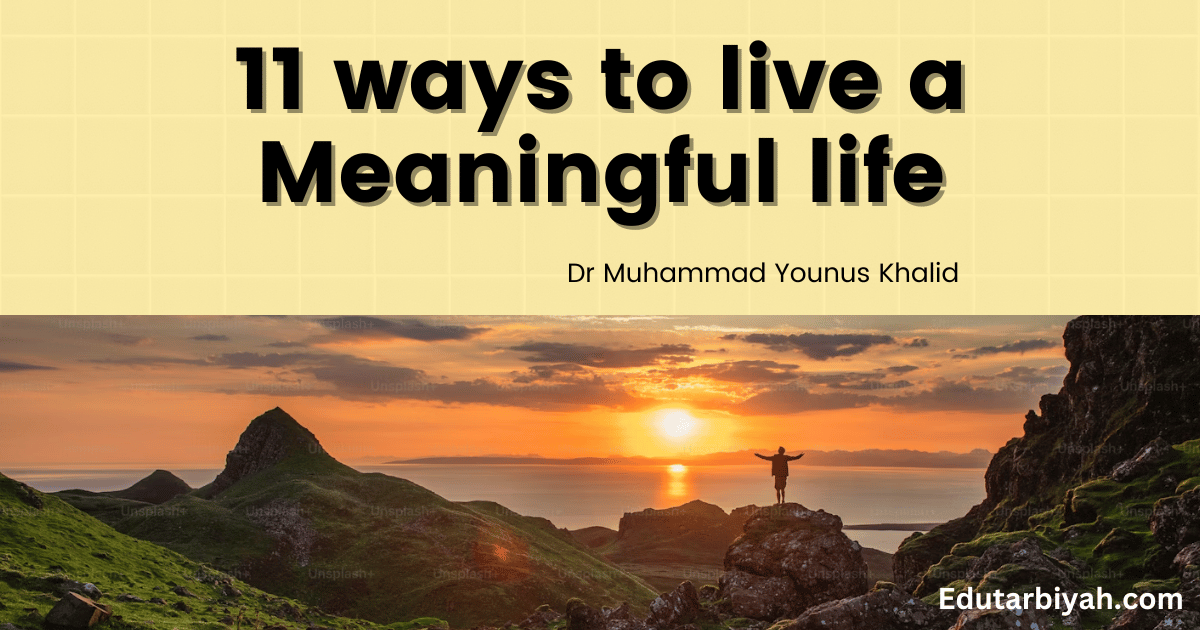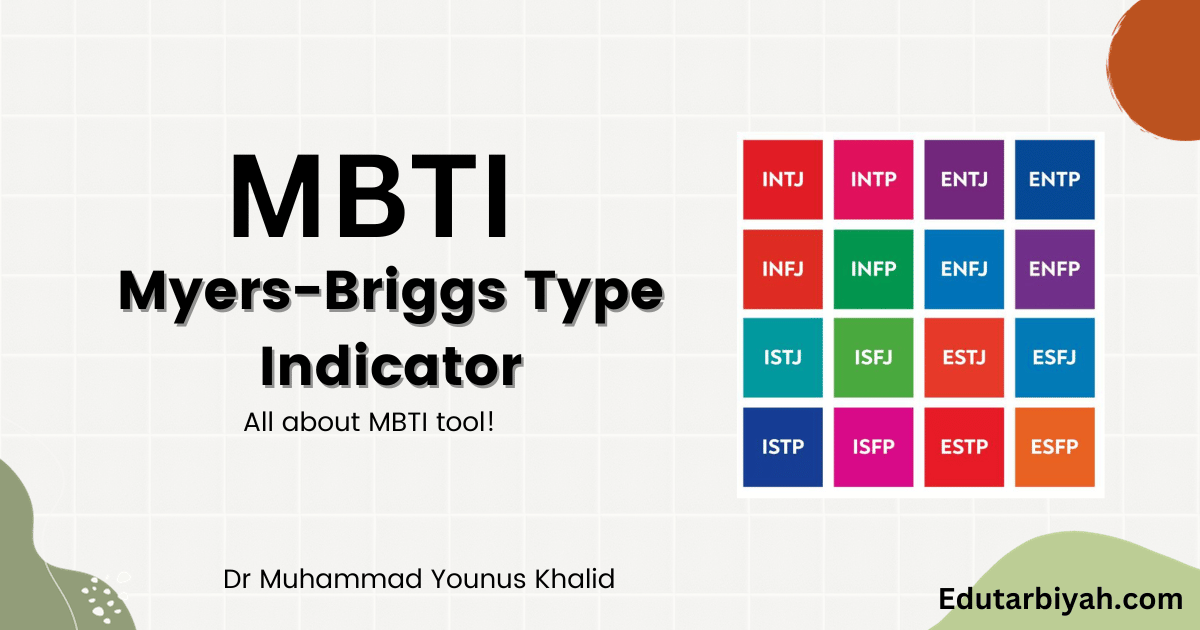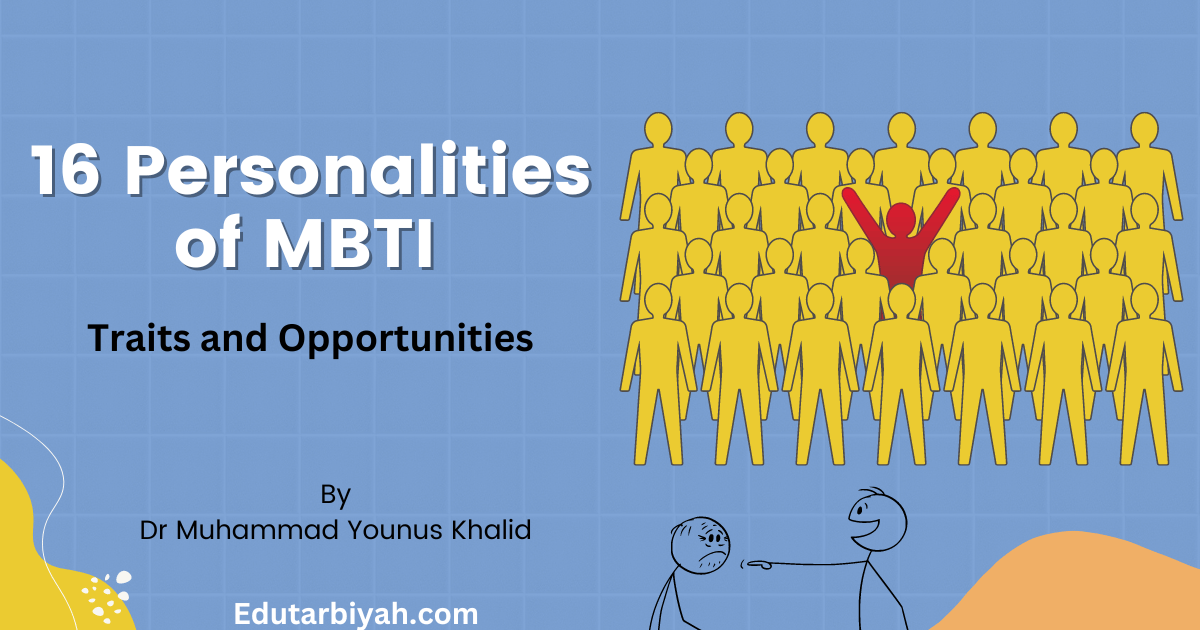11 ways to live a Meaningful life

Before going ahead, the first question is, what a meaningful life is all about? So, the answer is a meaningful life is one that has purpose, fulfillment and a sense of satisfaction. It is a life that is lived intentionally, with personal values and beliefs guiding decisions and actions.
It’s about finding things that make you happy, fulfilled, and satisfied in a deep way. Imagine your life as a big puzzle, and the pieces that fit are the things that give your life meaning.
Firstly, it’s different for everyone. What’s meaningful for you might not be the same for someone else. It’s unique and personal. Meaning can come from many places: relationships with family and friends, doing things you love or care about, helping others, achieving goals, or feeling connected to something bigger, like a community or a cause.
Feeling like you’re growing and learning, even from tough times, can also add meaning. It’s not always about being happy all the time; it’s about feeling like what you do matters.
Think about what makes you feel good, what makes you proud, what brings a smile to your face, or what makes you feel like you’re making a difference. These things might give clues about what makes your life meaningful.
It is long life journey.
It’s a journey, not a destination. Sometimes it takes time to figure out what gives your life meaning, and that’s okay. Keep exploring, trying new things, and connecting with what feels right for you. A meaningful life is about living in a way that feels genuine and fulfilling to you.
Elements of a Meaningful Life in different perspectives.
A meaningful life can be viewed from various perspectives, and it encompasses different elements that contribute to its richness and depth. Here are some perspectives and their corresponding elements:
-
Personal Fulfillment Perspective:
Purpose and Passion: Finding and pursuing activities or goals that resonate with your values, passions, and interests.
Self-Expression: Having the freedom and opportunity to express yourself authentically, whether through creativity, hobbies, or personal development.
-
Relationships and Connections Perspective:
Meaningful Relationships: Nurturing deep connections with family, friends, and community, fostering love, support, and shared experiences.
Contributing to Others: Making a positive impact on others’ lives, offering support, empathy, and kindness.
-
Contribution to Society Perspective:
Service and Contribution: Engaging in activities or work that contributes positively to society, making a difference in larger communities or causes.
Social Impact: Addressing social issues, volunteering, activism, or advocating for meaningful change.
-
Spiritual or Philosophical Perspective:
Inner Growth: Cultivating inner peace, wisdom, and spiritual development through practices like mindfulness, meditation, or contemplation.
Finding Meaning in Adversity: Understanding and growing from challenges, finding meaning even in difficult situations.
-
Achievement and Success Perspective:
Setting Goals: Working towards personal or professional goals, achieving milestones, and experiencing a sense of accomplishment.
Continuous Learning: Embracing learning opportunities, acquiring new skills, and evolving personally and professionally.
-
Gratitude and Mindfulness Perspective:
Gratitude: Cultivating gratitude for what you have, appreciating life’s blessings, and acknowledging moments of joy and contentment.
Living Mindfully: Being present in the moment, savoring experiences, and finding meaning in the ordinary aspects of life.
-
Balancing Health and Well-being Perspective:
Physical and Mental Health: Prioritizing self-care, maintaining a healthy lifestyle, and nurturing mental and physical well-being.
Work-Life Balance: Balancing work, leisure, and personal time to avoid burnout and ensure a harmonious life.
These perspectives and elements often intertwine, and what constitutes a meaningful life can vary greatly from person to person. Combining and integrating these elements in your life can contribute to a sense of purpose, fulfillment, and meaning.
Why it is so important?
A meaningful life is important because it gives us a sense of purpose, fulfillment, and satisfaction. It’s about feeling that what we do matters, that we contribute something valuable to the world, and that our existence has significance.
-
Sense of Purpose:
When our life has meaning, we have a clear reason for our actions and existence. It provides us with direction, goals, and a sense of direction. This purpose can be anything from helping others, pursuing a passion, contributing to a cause, or simply being a good friend or family member.
-
Mental and Emotional Well-being:
Living a meaningful life often leads to greater mental and emotional well-being. It helps in combating feelings of emptiness, depression, and anxiety because it gives us something to strive for and look forward to. Having a purpose can provide a sense of satisfaction and contentment.
-
Connection with Others:
Meaningful lives often involve connections with other people. Helping others, forming meaningful relationships, and contributing positively to the lives of others can foster a sense of belonging and social connection. This sense of community is crucial for our overall well-being.
-
Personal Growth and Fulfillment:
Meaningful lives often involve personal growth and self-improvement. Whether it’s learning new things, overcoming challenges, or pursuing our passions, a meaningful life encourages us to grow and develop as individuals, leading to a sense of fulfillment.
-
Facing Challenges:
A meaningful life can help us navigate through difficult times. When we have a strong sense of purpose, it can provide us with the resilience and motivation needed to overcome obstacles and face challenges head-on.
-
Legacy and Impact:
A meaningful life is often associated with leaving a positive impact or legacy. It’s about making a difference, even if it’s in small ways, that can positively influence the lives of others or the world as a whole. Knowing that our actions have made a positive impact can bring a profound sense of fulfillment.
Ultimately, a meaningful life is about finding a balance between personal satisfaction, contributing to something beyond oneself, and fostering connections with others. It’s subjective and can vary greatly from person to person, but its importance lies in its ability to provide a framework for a fulfilling and purposeful existence.
Meaningfulness in Islamic perspective.
In Islam, leading a meaningful life revolves around fulfilling one’s purpose as outlined by the teachings of the Quran (the holy book) and the Hadith (the sayings and actions of Prophet Muhammad, peace be upon him). Here are some key aspects of leading a meaningful life from an Islamic perspective:
-
Submission to Allah (God):
The primary purpose of life in Islam is to worship and submit to Allah. This means recognizing the oneness of God, following His commandments, and striving to live a righteous life according to Islamic principles.
-
Taqwa (God-Consciousness):
Leading a meaningful life involves cultivating taqwa, which refers to being conscious and mindful of God in all aspects of life. It involves avoiding sinful actions, doing good deeds, and constantly seeking closeness to God through prayers, charity, and righteous conduct.
-
Striving for Excellence (Ihsan):
Islam encourages believers to strive for excellence in all aspects of life. This includes personal conduct, interactions with others, work, and relationships. The concept of “Ihsan” teaches Muslims to do things in the best possible manner and to be virtuous in their actions.
-
Serving Humanity:
Islam emphasizes the importance of serving and benefiting humanity. Acts of charity (Sadaqah), helping the needy, being kind to others, and promoting justice and compassion are highly encouraged. Muslims are urged to be beneficial members of society and contribute positively to the well-being of others.
-
Seeking Knowledge:
Islam encourages the pursuit of knowledge. Acquiring knowledge, whether religious or worldly, is seen as a means of understanding the world, benefiting society, and getting closer to God. Seeking knowledge and wisdom is considered a noble and rewarding endeavor.
-
Patience and Trust in God:
Leading a meaningful life in Islam involves patience during trials and challenges. Believers are encouraged to remain patient, have trust in God’s plan, and seek His help and guidance during difficult times.
-
Balanced Living:
Islam emphasizes the importance of balance in life. This includes balancing spiritual obligations (prayer, fasting, charity) with worldly responsibilities (work, family, society). Striking this balance leads to a fulfilling and meaningful life.
-
Accountability and Hereafter:
Muslims believe in the Day of Judgment and the afterlife. Leading a meaningful life in Islam involves being accountable for one’s actions and striving to do good deeds with the belief in being rewarded in the Hereafter.
In essence, a meaningful life in Islam revolves around submission to God, leading a righteous and virtuous life, serving humanity, seeking knowledge, maintaining balance, and preparing for the eternal life after death. By following these principles, Muslims aim to find purpose, fulfillment, and closeness to God in their lives.
Ways to live meaningful life.
Living a meaningful life can be approached in various ways, and here are eleven practices that can help individuals find purpose and fulfillment:
-
Define Your Values and Goals:
Reflect on your values, what matters most to you, and what you aspire to achieve. Set clear, achievable goals aligned with these values. This gives direction and purpose to your actions.
-
Cultivate Gratitude:
Practice gratitude by acknowledging and appreciating the blessings in your life. Gratefulness fosters a positive mindset and helps you recognize the value in everyday moments.
-
Serve Others:
Engage in acts of kindness and service. Helping others, volunteering, or supporting a cause can bring a sense of fulfillment and connection to something larger than yourself.
-
Nurture Relationships:
Cultivate meaningful relationships with family, friends, and your community. Invest time and effort in nurturing these connections, as they often bring joy, support, and a sense of belonging.
-
Seek Personal Growth:
Continuously seek self-improvement and growth. Challenge yourself to learn new skills, explore your interests, and step out of your comfort zone. Personal development contributes to a sense of fulfillment and accomplishment.
-
Live Mindfully:
Practice mindfulness and being present in the moment. Mindfulness helps in appreciating life as it unfolds, reducing stress, and fostering a deeper connection to your experiences.
-
Find Purpose in Work:
Strive to find meaning in your profession or career. Whether through aligning your job with your passions or finding purpose in the impact it has on others, seeking meaning in your work can lead to a more fulfilling life.
-
Take Care of Your Well-being:
Prioritize your physical, mental, and emotional health. Regular exercise, proper nutrition, adequate sleep, and stress management contribute to a healthier and more fulfilling life.
-
Embrace Challenges:
View challenges as opportunities for growth. Embracing difficulties with resilience and a positive mindset can lead to personal development and a stronger sense of achievement.
-
Practice Reflection and Meditation:
Take time for introspection and self-reflection. Engage in meditation, prayer, or journaling to contemplate your thoughts, feelings, and experiences, which can bring clarity and insight into your life.
-
Live Authentically:
Be true to yourself and your values. Embrace authenticity by living in accordance with your beliefs, expressing yourself genuinely, and staying true to your principles.
Living a meaningful life is a continuous journey, and it’s essential to find a balance between these practices that resonate with you personally. Integrating these elements into your daily life can contribute to a sense of purpose, fulfillment, and a more meaningful existence.
Conclusion:
Finding meaning in life is a deeply personal journey, unique to each individual. It involves understanding what matters most to you, living in alignment with your values, and contributing positively to the world around you. A meaningful life is not about achieving grandiose goals but rather about finding purpose and fulfillment in everyday experiences.
It encompasses elements such as fostering meaningful relationships, serving others, seeking personal growth, and staying true to oneself. Embracing gratitude, practicing mindfulness, and facing challenges with resilience are also integral parts of leading a meaningful existence.
Living a meaningful life doesn’t mean being free from difficulties or hardships. Instead, it involves navigating these challenges with grace, seeking lessons in adversity, and using them as opportunities for growth.
Ultimately, a meaningful life is about finding joy and purpose in the journey itself, rather than solely focusing on the destination. It’s a continuous process of self-discovery, self-improvement, and contributing positively to the world, leading to a sense of contentment, fulfillment, and a life well-lived. As you embark on this journey, remember that the pursuit of a meaningful life is an ongoing, evolving process that is shaped by your experiences, choices, and aspirations.
F & Qs
Here are five frequently asked questions (FAQs) related to living a meaningful life:
- What is the meaning of life, and how can I find my purpose?
Exploring the meaning of life is a personal journey. Finding purpose often involves introspection, understanding personal values, setting meaningful goals, and engaging in activities that align with those values.
- Can I live a meaningful life if I’m facing challenges or setbacks?
Yes, facing challenges is a natural part of life. Embracing difficulties with resilience, learning from them, and using them as opportunities for growth can contribute to a more meaningful life.
- How can I balance pursuing my own goals with serving others?
Balancing personal aspirations with serving others involves finding harmony between self-care and contributing to the well-being of others. Incorporating acts of kindness, volunteering, or supporting causes aligning with personal values can achieve this balance.
- What role does gratitude play in living a meaningful life?
Gratitude fosters a positive mindset and appreciation for life’s blessings. Practicing gratitude daily can enhance well-being, cultivate contentment, and bring awareness to the value in even the simplest aspects of life.
- Is it necessary to have a specific religious or spiritual belief to lead a meaningful life?
Meaningfulness can be derived from various sources, including religious or spiritual beliefs, personal values, relationships, contributions to society, or a sense of connection to something greater than oneself. It’s a subjective experience that differs for each individual.



